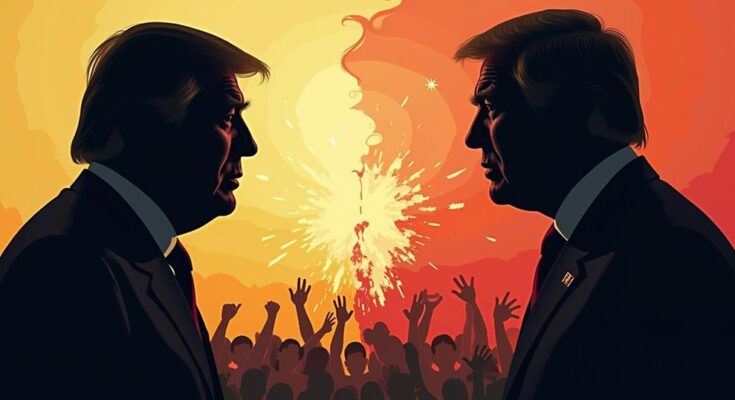In New York, U.S. Secretary of State Antony Blinken and Argentine Foreign Minister Diana Mondino collaborated to address Venezuela’s political crisis at the U.N. General Assembly. They condemned the authoritarian regime of President Maduro and called for a return to democracy, highlighting the refugee crisis that has affected the region significantly. Their joint statements reflect a commitment to uphold human rights and democratic principles amid growing instability in Latin America.
On September 26, U.S. Secretary of State Antony Blinken and Argentine Foreign Minister Diana Mondino convened a strategic diplomatic meeting during the U.N. General Assembly in New York to address the critical situation in Venezuela. This meeting aimed to establish a concerted front opposing the authoritarianism exemplified by President Nicolas Maduro. Minister Mondino articulated the collective concern, stating, “There are winds, authoritarian winds, blowing in our continent, and let’s hope it does not become a hurricane. The things that are going on in Venezuela can become a most serious problem.” Secretary Blinken reiterated the United States’ position regarding Maduro’s refusal to step down following overwhelming evidence that he lost the presidential election held on July 28. He condemned the brutal repression of peaceful protesters that has caused a massive refugee crisis, with millions fleeing the country. “We come here united in the commitment to defend the human rights of the Venezuelan people, and committed to bring about an inclusive, Venezuelan-led effort to restore the nation’s democratic future,” Blinken affirmed. He emphasized the urgency of a direct dialogue between Maduro and Venezuela’s democratic opposition to facilitate a peaceful return to democracy. During the meeting, both diplomats called for recognition of the opposition’s electoral victory and for respect for democratic results, a position echoed by 40 attending countries and organizations, including the European Union and the Organization of American States. Additionally, the United States, Argentina, and 29 other nations expressed their serious concerns regarding the situation in Venezuela, underscoring their commitment to upholding democratic principles and human rights. Minister Mondino highlighted the severe impact of Venezuela’s crisis on other Latin American countries, noting that approximately 7.8 million Venezuelans have fled, significantly affecting Argentina and neighboring nations. She warned that the influx of refugees could foster unprecedented xenophobia across the continent, stating, “The destabilization … that Venezuela has imposed on other Latin American countries is huge.” These concerns were underscored as tensions escalated back in Venezuela, where the Argentine embassy faced hostility from Maduro’s regime. In a broader context, the General Assembly saw right-wing Argentine President Javier Milei commend the need for reform in international organizations, describing the U.N. as a “failing organization” that propagates a “socialist agenda.” Overall, this high-profile diplomatic meeting underscored the urgent need to address the ongoing humanitarian and political crises in Venezuela, stressing the collective responsibility of the international community to support democratic restoration and the rights of Venezuelan citizens.
The ongoing crisis in Venezuela, marked by political turmoil and a significant human rights situation, has led to widespread condemnation from the international community, particularly from the United States and several Latin American nations. Under President Nicolas Maduro, Venezuela has faced accusations of electoral fraud, oppressive governance, and a catastrophic humanitarian crisis resulting in millions of refugees leaving the country. This situation has created substantial destabilization across Latin America, raising concerns about potential xenophobia and the strain on neighboring countries that are absorbing these refugees. The context of the U.N. General Assembly provides a platform for these nations to articulate their stances and forge united diplomatic responses to emergent global issues, particularly those threatening democratic principles.
The diplomatic efforts between the United States and Argentina highlight a growing concern over the authoritarian regime in Venezuela under President Maduro. As both nations, along with other global partners, work to ensure respect for democratic processes and human rights, the enormity of the Venezuelan refugee crisis serves as a critical reminder of the urgent need for a unified international response to restore democracy in the region. These discussions at the U.N. General Assembly underscore the escalating ramifications of Venezuela’s internal strife on its neighbors and the collective responsibility to address the challenges posed by authoritarianism in Latin America.
Original Source: www.upi.com




